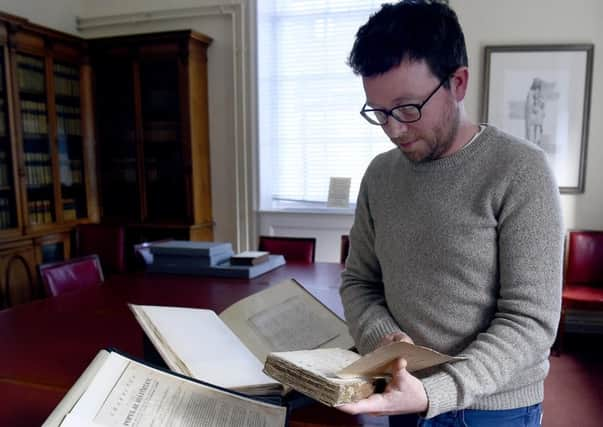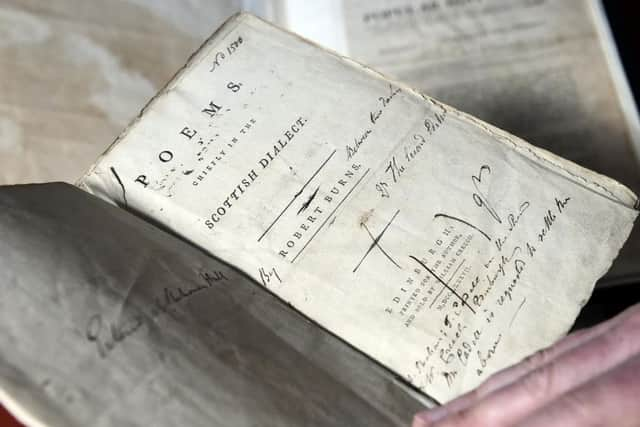Enlightenment exhibition hails golden era of ideas


The National Library of Scotland will bring together leading intellectual, cultural, medical and scientific figures for a show that will lift the lid on the “phenomenon that changed the country’s course”. Due to run from June until March, Northern Lights will recall the unprecedented “outburst” of accomplishments achieved by a diverse array of key players in the 18th century.
Philosopher David Hume, economist Adam Smith, architect Robert Adam, mathematician John Playfair and poet Robert Burns will be among the Enlightenment figures to feature in the exhibition.
Advertisement
Hide AdAdvertisement
Hide AdMore than a year in the planning, it will also highlight Sir John Sinclair, who compiled the first survey of geography, economy and society in every part of Scotland, James Hutton, best known as the founding father of geology who overturned long-standing beliefs about how and when the world was formed, and steam engine inventor James Watt.


Billed as “a showcase of the leading role Scotland took in the intellectual and scientific progress of the later 18th century”, the exhibition will feature rarely seen books, manuscripts and maps from the library’s archives.
It will explore how ideas emerged from the social and professional networks in laboratories, clubs, societies, workshops, coffee shops, taverns and even private drawings rooms, as well as from organisations such as the Faculty of Advocates Library, the Royal Botanic Garden in Edinburgh and the Glasgow Literary Society.
The exhibition will explore to what extent the 1707 Act of Union paved the way for the Enlightenment or whether the necessary conditions were already in place before the political upheaval, and examine why the contribution of women in 18th century Scotland has been largely overlooked.
Advertisement
Hide AdAdvertisement
Hide AdOther cultural figures expected to be featured include the artists Allan Ramsay and Henry Raeburn, and poets Robert Fergusson and James Macpherson.
The exhibition will also feature the contributions of lesser-known luminaries, including Thomas Reid, founder of the “common sense” school of philosophy, William Smellie, who published the first edition of the Encyclopædia Britannica, and Lord Monbodo, a judge who famously questioned whether orangutans were part of the human race.
A spokeswoman for the National Libraries said: “The exhibition will show how diverse and innovative the Scottish Enlightenment and its key players were, and the many and varied fields in which they operated.”
Rare books curator Robert Betteridge said: “We have chosen to focus on the period between the 1730s and the end of the 18th century. Our collections for this period are so rich, but previous exhibitions have focused on particular individuals.”
Advertisement
Hide AdAdvertisement
Hide AdAdam Wilkinson, director of Edinburgh World Heritage, said: “The profound and far reaching influence of the Scottish Enlightenment is perhaps less understood and appreciated than it should be, especially here in Edinburgh.
“This was our golden age as a city, and the confidence which came from the intellectual field was an important backdrop to the remarkable physical transformation of Edinburgh as the Nor’ Loch was drained and the first New Town planned and built.”